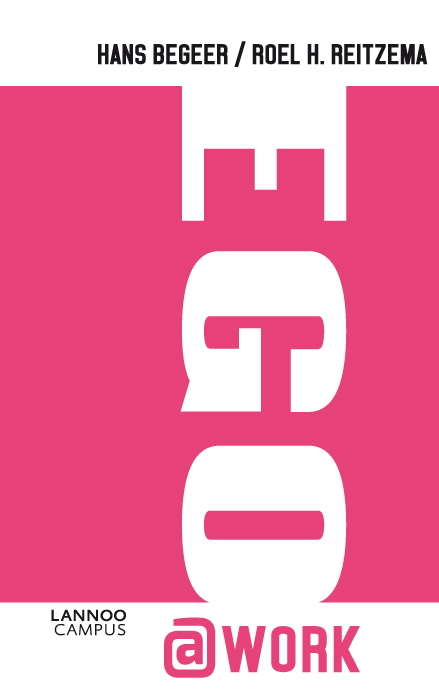ego@WORK
Why should you read this book?
You probably don’t think about your ego very often. Do you have any idea how your ego comes across to other people? Did you know that 95% of your behavior is driven by your unconscious mind? Can you apply your conscious mind to manage yourself better?
When we talk about the ego, it is often in a negative sense: ‘A really big ego just entered the room; he is so self-centered!”. But what are egos about: what is an ego? The ego is the instrument through which you develop your behavior. Your ego has made choices for you across the course of your life, from your infancy through your childhood, education and work experiences.
We are unaware of most of these choices, but they influence our behavior. Today, everything we do must be done quickly, we must identify problems and fix them immediately. As a result, we don’t take enough time to consider our options. We act almost without thinking, driven by our ego, on autopilot. This is true of almost everyone. Groups of people who must work together have to deal with many egos. When everyone reacts automatically, driven by their egos, collisions and conflicts result and efficiency suffers.
How can we get to know more about our ego and how it determines our behavior? This can be done through introspection, by contemplating the feedback of others and by self-reflection. It is in our interest to adjust our own ego so that we can evolve to a point where we are aware of our ego and manage it to make choices from an inclusive (We) rather than an egocentric (I) perspective. That is the focus of this book, to help us become more aware of our ego and to provide techniques to evolve from I to We-thinking, to facilitate harmony and improve efficiency in the workplace.
Each topic in this book is presented from the perspective of I and We. After reading this book you will have answers to the following questions:
For the I perspective:
- How do I develop more ego-awareness or consciousness?
- How does positive ego-development contribute to more authenticity?
- How to overcome defense mechanisms of the ego?
- How to increase my creativity and problem-solving capacity?
- How to develop new behavior?
For the We perspective:
- Which leadership competencies do you have to develop more ethical and social skills?
- What new authority do you have to develop and how can you get rid of the old authority?
- What kind of new social contract is needed?
- Which roles and processes fit these?
- How do you grow spiritual presence?
The book is structured as follows:
- In chapter 2-4 we describe what ego is about and how it manifests itself
- In chapter 5-9 we develop and present our model
- In chapter 10 we describe a case
- In chapter 11 we take lessons from the book
- In chapter 12 we advise how this book can be of help to you

